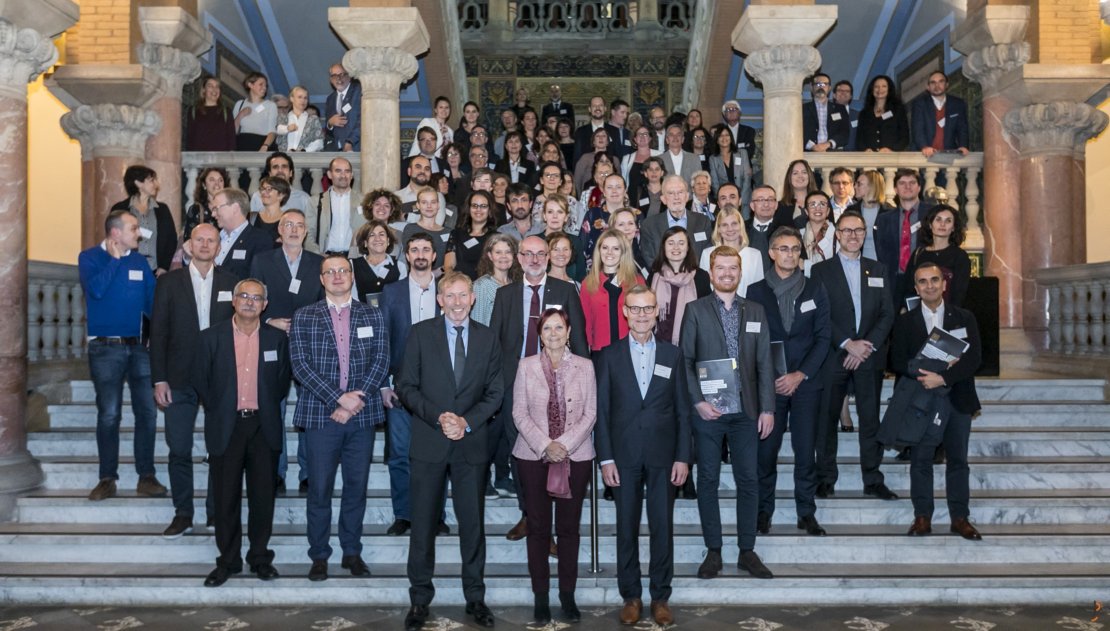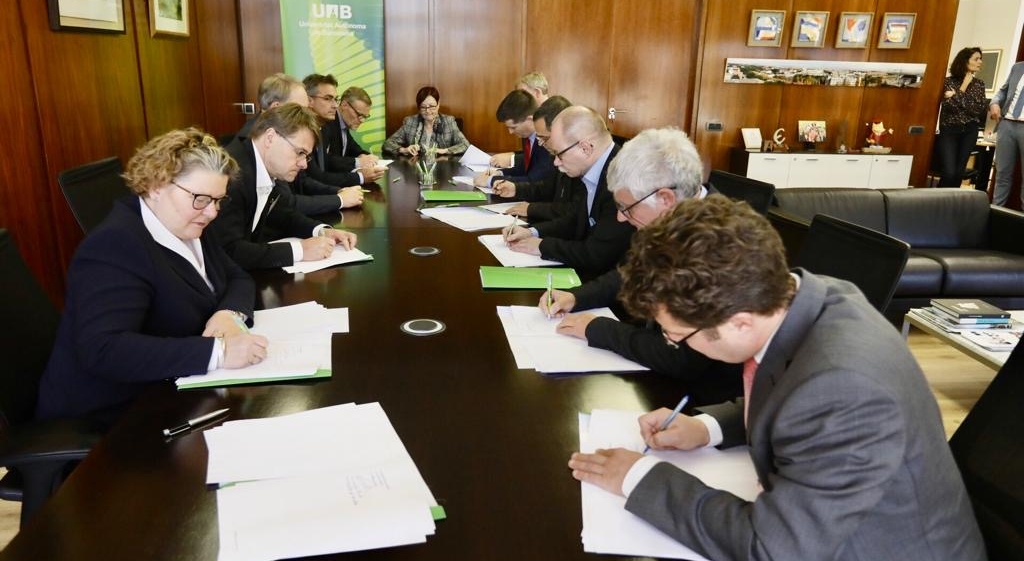ECIU University, the first European university where learners and researchers cooperate with cities, regions and businesses to solve real-life challenges, was launched last week in Barcelona. The University of Twente has been selected to coordinate the initiative. UT-employee Sander Lotze has been appointed as the project director.
International mobility and collaborations
The official kick-off of the ECIU University was hosted by Universitat Autònoma de Barcelona, ECIU’s Spanish member. Using its facilities at the Bellaterra campus and the UAB Casa Convalescència in Barcelona, the ECIU University Board met for the first time. Typical new for this university is the participation of representatives of the industry and government in the Board. Onno van Veldhuizen, mayor of Enschede, will be one of them.

The objective of the new international university is to establish a new concept of international university, going beyond regular European collaboration. Education will be based on solving challenges, embedded international mobility and collaborations among universities. Learners will get micro-credentials for short, very specialised training courses, and a competence “passport” which will provide an individualised account of what each student has learned and the skills acquired.
Living labs
With regard to research and knowledge transfer, a series of living labs will be created in both physical and online spaces where university researchers will work directly with businesses and institutions in the definition and monitoring of projects. Moreover, three Challenge Innovation Hubs will be set up in northern, central and southern Europe. They will be coordinated each by Linköping University (Sweden), Hamburg University of Technology (Germany) and Universitat Autònoma de Barcelona (Spain).
In this pilot phase the ECIU University focuses on challenges related to the UN Sustainable Development Goal 11 to “Make cities and human settlements inclusive, safe, resilient and sustainable”.

ERASMUS+
ECIU University was one of 17 international initiatives selected by the European Commission after a call for European Universities as part of the EU Erasmus+ programme. The project will receive 5 million Euros in funding over three years.
Members of the ECIU University include:
- University of Twente (coordinator, the Netherlands)
- Linköping University (Sweden)
- Hamburg University of Technology (Germany)
- Universitat Autònoma de Barcelona (Spain)
- Aalborg University (Denmark)
- University of Aveiro (Portugal)
- Dublin City University (Ireland)
- Kaunas University of Technology (Lithuania)
- University of Stavanger (Norway)
- University of Trento (Italy)
- Tampere University (Finland)
Associated partner: Institut National des Sciences Appliquées, France. Partner of the ECIU Foundation: Tec de Monterrey, Mexico.
Industrial stakeholders include Airbus, Cisco, Engineering Ingegneria Informatica S.p.A., Ericsson AB, Hella Lithuania, Intel, Lietuvos Energija, Lyse Group, NXP, Ponsse, Sandoz Industrial Products S.p.A. Gruppo Novartis, Sick AG, and Suez Environment, as well as in the case of the UAB, the city councils of Barcelona and Cerdanyola.





